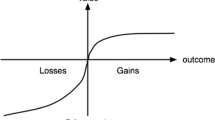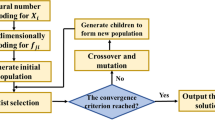Abstract
With the popularization of electric vehicles (EVs), more and more charging stations are deployed in the urban area. This brings practical interest to the operation optimization of the charging station in a competitive charging market. As EV drivers are sensitive to the charging cost, the charging price is one of the major concerns during the operation optimization for the charging station. This paper considers this important problem and makes the following contributions. Firstly, a charging demand simulation method is proposed to generate the potential charging demand based on the transportation network and EV trip characteristic. By multiple scenarios generation, the uncertainties in the charging demand can be incorporated. Secondly, a competitor awareness model is proposed to predict the possible charging pricing policies of the competitors. This method can discover the implicit relationship between pricing policy and the status of the competitors without the requirement of the competitors’ utility functions. Thirdly, a Grey wolf optimization (GWO)-based charging price determination algorithm is proposed considering the uncertain charging demand, the pricing policies of the competitors and the charging willingness of EVs. Numerical results demonstrate that the proposed method can improve the competitiveness and the operation profit of the charging station.















Similar content being viewed by others
References
Elkasrawy MA, Abdellatif SO, Ebrahim GA, Ghali HA (2023) Real-time optimization in electric vehicle stations using artificial neural networks. Electr Eng 105(1):79–89
China vows to build charging infrastructure system by 2030 to support NEV development [online]. Available: https://www.globaltimes.cn/pag e/202306/1292876.shtml
Fochesato M, Zanvettor GG, Casini M, Vicino A (2022) A data-driven dynamic pricing scheme for EV charging stations with price-sensitive customers. In: 2022 IEEE 61st conference on decision and control (CDC), pp 5042–5047
Lu C, Wu J, Cui J, Xu Y, Wu C, Gonzalez MC (2022) Deadline differentiated dynamic EV charging price menu design. IEEE Trans Smart Grid 14(1):502–516
Kapoor A, Patel VS, Sharma A, Mohapatra A (2022) Centralized and decentralized pricing strategies for optimal scheduling of electric vehicles. IEEE Trans Smart Grid 13(3):2234–2244
Wang S, Bi S, Zhang YJA, Huang J (2018) Electrical vehicle charging station profit maximization: admission, pricing, and online scheduling. IEEE Trans Sustain Energy 9(4):1722–1731
Li H, Zhu J, Zhou Y, Feng Q, Feng D (2022) Charging station management strategy for returns maximization via improved TD3 deep reinforcement learning. Int Trans Electr Energy Syst 1–14
Luo C, Huang YF, Gupta V (2017) Stochastic dynamic pricing for EV charging stations with renewable integration and energy storage. IEEE Trans Smart Grid 9(2):1494–1505
Yuan W, Huang J, Zhang YJA (2015) Competitive charging station pricing for plug-in electric vehicles. IEEE Trans Smart Grid 8(2):627–639
Dong X, Mu Y, Xu X, Jia H, Wu J, Yu X, Qi Y (2018) A charging pricing strategy of electric vehicle fast charging stations for the voltage control of electricity distribution networks. Appl Energy 225:857–868
Cui Y, Hu Z, Duan X (2021) Optimal pricing of public electric vehicle charging stations considering operations of coupled transportation and power systems. IEEE Trans Smart Grid 12(4):3278–3288
Lai S, Qiu J, Tao Y, Zhao J (2022) Pricing strategy for energy supplement services of hybrid electric vehicles considering bounded-rationality and energy substitution effect. IEEE Trans Smart Grid 14(4):2973–2985
Li K, Shao C, Zhang H, Wang X (2022) Strategic pricing of electric vehicle charging service providers in coupled power-transportation networks. IEEE Trans Smart Grid 14(3):2189–2201
Vuelvas J, Ruiz F, Gruosso G (2021) A time-of-use pricing strategy for managing electric vehicle clusters. Sustain Energy, Grids Netw 25:100411
Huang Q, Jia QS, Wu X, Guan X (2023) Two-phase on-line joint scheduling for welfare maximization of charging station. IEEE Trans Autom Sci Eng
Bao Z, Hu Z, Kammen DM, Su Y (2021) Data-driven approach for analyzing spatiotemporal price elasticities of EV public charging demands based on conditional random fields. IEEE Trans Smart Grid 12(5):4363–4376
National Development and Reform Commission [online]. Available: https://www.ndrc.gov.cn/xxgk/zcfb/tz/202401/t20240104_1363096_ext.html
Fu L, Wang T, Song M, Zhou Y, Gao S (2023) Electric vehicle charging scheduling control strategy for the large-scale scenario with non-cooperative game-based multi-agent reinforcement learning. Int J Electr Power Energy Syst 153:109348
Rubinstein A (1998) Modeling bounded rationality. MIT Press, Cambridge
He H, Boyd-Graber J, Kwok K, Daumé III H (2016) Opponent modeling in deep reinforcement learning. In: International conference on machine learning, pp 1804–1813
Moravčík M, Schmid M, Burch N, Lisý V, Morrill D, Bard N et al (2017) Deepstack: expert-level artificial intelligence in heads-up no-limit poker. Science 356(6337):508–513
Notomista G, Wang M, Schwager M, Egerstedt M (2020) Enhancing game-theoretic autonomous car racing using control barrier functions. In: 2020 IEEE international conference on robotics and automation (ICRA), pp 5393–5399
Puterman M (1994) Markov Decision processes: discrete stochastic dynamic programming. Wiley, Hoboken
Hosseini SM, Goldani SR, Najafi HR (2023) Robust payment cost minimization in electricity markets. Electr Eng 105(3):1481–1495
Li Y, Yu C, Shahidehpour M, Yang T, Zeng Z, Chai T (2023) Deep reinforcement learning for smart grid operations: algorithms, applications, and prospects. Proc IEEE 111(9):1055–1096
Tan J, Wang L (2015) Real-time charging navigation of electric vehicles to fast charging stations: a hierarchical game approach. IEEE Trans Smart Grid 8(2):846–856
Wytock M, Moehle N, Boyd S (2017) Dynamic energy management with scenario-based robust MPC. In: 2017 American control conference (ACC), pp 2042–2047
Mirjalili S, Mirjalili SM, Lewis A (2014) Grey wolf optimizer. Adv Eng Softw 69:46–61
Mathew TV, Sharma S (2009) Capacity expansion problem for large urban transportation networks. J Transp Eng 135(7):406–415
Nissan Leaf EV [online]. Available: https://ev-database.org/car/1106/Nissan-Leaf#charge-table
Xiang Y, Yang J, Li X, Gu C, Zhang S (2021) Routing optimization of electric vehicles for charging with event-driven pricing strategy. IEEE Trans Autom Sci Eng 19(1):7–20
Funding
This work was supported by Science and Technology Project of State Grid Jiangsu Electric Power Co., Ltd. (Grant No. J2023012).
Author information
Authors and Affiliations
Contributions
Fei Zeng contributed to conceptualization and methodology. Xiaodong Yuan contributed to supervision and project administration. Yi Pan contributed to software and writing. Mingshen Wang contributed to methodology and writing. Huiyu Miao contributed to resources and suggestion. Huachun Han contributed to revision and suggestion. Shukang Lyu contributed to revision and suggestion.
Corresponding author
Ethics declarations
Conflict of interest
The authors declare that there is no conflict of interest.
Consent to participate
Authors confirm the participation in this paper.
Consent for publication
Authors accept the publication rules applied by the journal.
Ethics approval
Not applicable.
Additional information
Publisher's Note
Springer Nature remains neutral with regard to jurisdictional claims in published maps and institutional affiliations.
Rights and permissions
Springer Nature or its licensor (e.g. a society or other partner) holds exclusive rights to this article under a publishing agreement with the author(s) or other rightsholder(s); author self-archiving of the accepted manuscript version of this article is solely governed by the terms of such publishing agreement and applicable law.
About this article
Cite this article
Zeng, F., Yuan, X., Pan, Y. et al. GWO-based charging price determination for charging station with competitor awareness. Electr Eng (2024). https://doi.org/10.1007/s00202-024-02461-1
Received:
Accepted:
Published:
DOI: https://doi.org/10.1007/s00202-024-02461-1




